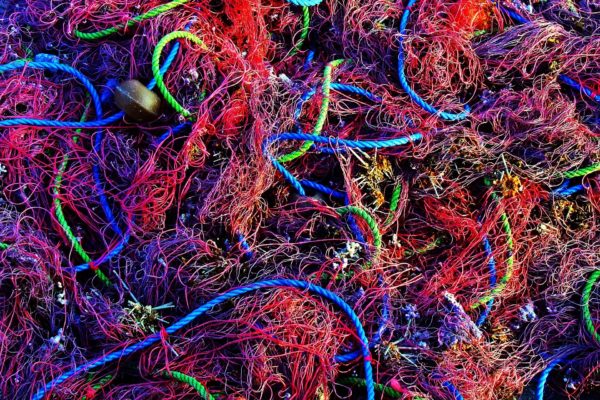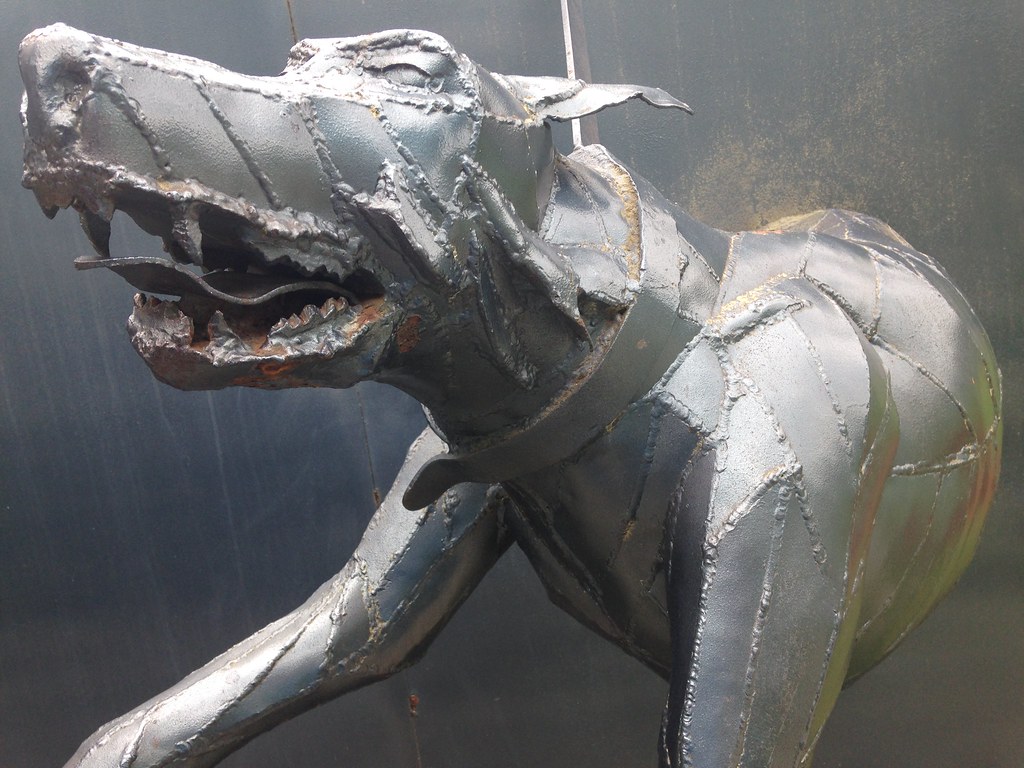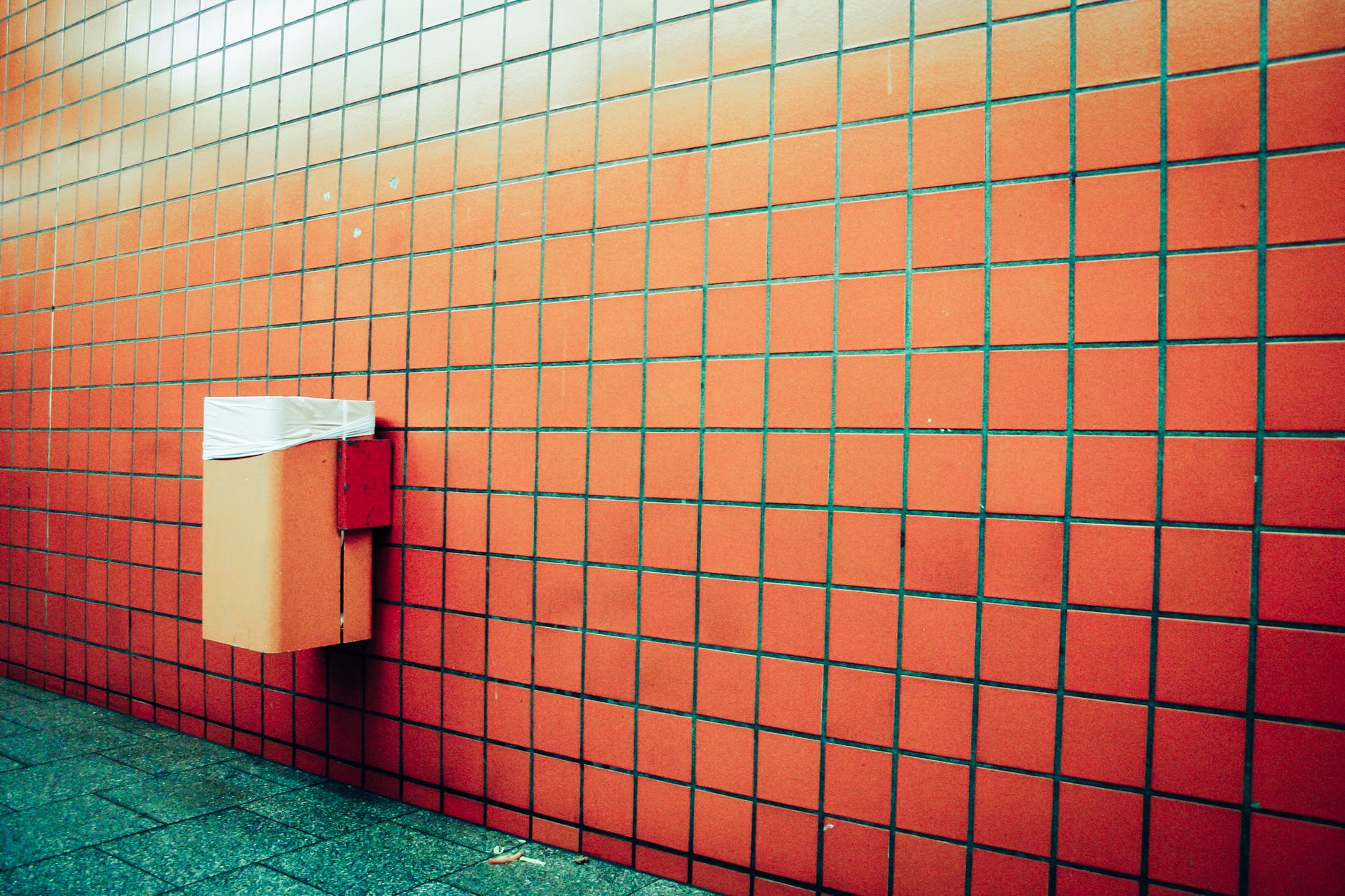By Barrie Sherwood
We left the port by night on a speedboat and once on the open sea met a trawler with three partitions in the hold, each of them a tank for holding fish. The middle tank had not been filled and my brother and I and the four others – two men and two women – climbed down the ladder from the deck into this chamber. My brother’s arms were waiting for me at the bottom and we felt our way along the wall to a corner. With his legs outstretched, he took me on his lap. We watched as the steel lid of the hold came down, leaving us in total darkness. I nestled against him, but when the thrum of the engines began, it did not lull me to sleep. The ship rolled through the swells, making everyone sick, and what was worse, the swaying motion caused the water from the tanks at either side to splash over, running down the bulkheads, until the floor was two inches or more deep with water.
My brother was not concerned about getting wet himself – it was the middle of summer so we weren’t particularly cold – but he immediately lifted the backpack from the floor and wedged it between his shoulders and the wall to keep it dry. Inside were three boxes of cigars that my father had brought from Cuba and which he had given us to use for bribes. I remember very clearly the elaborate paper covers, with their gold lettering and the cameo of Simon de Bolivar (a hero of socialism in Latin America, or so I had been taught). Apart from the cigars, there were three bags of dried scallops, two halves of a French baguette, a jar of yarsagumba, a bottle of Johnnie Walker Blue Label whiskey, and a black Tokarev pistol without bullets. My father had made us repeat the order of value: Scallops, cigars, whiskey, yarsagumba, pistol. Scallops, cigars, whiskey, yarsagumba, pistol. (The baguette was meant for eating, not bribing).
The most valuable things in our possession, however, were the watches we wore. My brother had an Audemars Piguet inscribed on the back with the date 16th February, 2001 and an elegant line rendering of a swallow over Mt Paektu. I knew this watch very well; it had an automatic motor that wound itself by the movement of your arm. My father would give it a shake each evening before he went to bed, and in the morning – I was an early riser – when I went into my parents’ bedroom, I would always pick up the watch, check that it was still running, and give it another shake. On my own wrist was a silver Longines, but it was not my mother’s – she never cared for watches or other jewelry. My father must have purchased it expressly for the journey because it was new and I had a certificate and guarantee from a Macau jewelry store in one of my pockets.
Early in our voyage, one of the men called out above the thrumming of the engines: he suggested that we each come up with a name. Something foreign or just plain silly. If we were caught, at least we wouldn’t be able to give the real names of the others in our company. To give us a start, he declared that he would henceforth be known as Panda.
We all laughed. Of course, we couldn’t see whether this Panda was short, fat and furry. We couldn’t tell anything about him at all apart from his rather high voice – more goat than panda, I thought.
One of the women called out into the darkness: “I’ll be Peony.”
“Very good. Hello Peony.”
“Hello Panda.”
“And I’m Mickey Mouse,” came the other woman’s voice.
I was surprised by this. My brother and I knew of Mickey Mouse and other Disney characters only because my father was reckless with his diplomatic pouches, bringing back all kinds of foreign videos from his overseas trips.
Panda objected. “You can’t be Mickey,” he said. “Mickey’s a man. You have to be Minnie.”
“Mickey’s not a man,” the woman said. “Mickey’s a woman.”
“I’m telling you it’s a man.”
“Woman.”
“Right, the rest of you, you know Mickey Mouse? Raise your hand if you think it’s a man.”
Of course no one could see a thing.
“You see?” said Panda quickly. “You’re Minnie, it’s decided. Who’s next?”
“I’m Napoleon,” came the voice of the second man.
We seemed to be going counter-clockwise in order. It was my brother’s turn. Perhaps emboldened by Mickey, he said: “Totoro.”
I giggled.
“Pardon?” said Panda.
“Totoro,” repeated my brother.
“Totoro? What’s that?”
“It’s a cartoon character from Japan. Like a cross between a bear and a house.”
“Okay. And what about your sister?”
“I’ll be Turtle,” I said.
“Good. That’s everyone.”
“Why Turtle?” my brother whispered.
I wasn’t sure. “Why Totoro?” I said. “It was the first thing that came into my head. That’s all.”
At some point during the night – my memory is no more precise than this – the ship rolled very suddenly and there was a great splash of water over one of the bulkheads. Mickey/Minnie screamed. Something was thrashing about in the water. I practically climbed onto my brother’s shoulders I was so terrified, and it took an age before the men could calm Minnie down – I shall call her Minnie – explaining that it was just a fish from one of the tanks that had come over. It splashed about and, with five centimetres of water on the floor and in utter darkness, was almost impossible to catch hold of. There was shouting and even laughter and then hushing and shushing, because we had been told not to make a sound, and finally the fish was cornered and Napoleon climbed the ladder and tossed it back over the bulkhead where it belonged.
Peony’s voice out of the darkness. “Totoro, she isn’t scared?”
“A little, maybe,” my brother replied. “But she’s strong.”
Peony had a soothing voice. “I know,” she said, “we’ll sing a song. Do you know this one?” And she began to sing “Little Tree”, a favorite of mine when I was younger. The melody is particularly plaintive and sweet:
Little tree, little tree, why are you crying so?
Little tree, little tree, our teacher tells us,
He comes to care for you,
He comes to care for you,
our Dear Leader
with our powerful People’s Army
that shakes heaven and earth.
Our hearts are ready for combat.
The pathetic Americans,
the South Korean puppets,
they kneel on the ground,
they beg for mercy.
They beg for mercy.
Little tree, little tree,
cry no more.
I had sung this with my mother on the way to primary school in the mornings. At each “little tree” we’d do a small hop, then a triple hop at “cry no more”; it didn’t mean anything, it was just our little routine.
The woman began again. “Little tree, little tree—”
“Shhh,” Napoleon hissed. “Forget those songs. They’ll arrest you for singing them in the south.”
The woman’s song and my brother’s lap made the situation bearable, but I still slept fitfully, worrying about the two full tanks beside us. There were Spanish mackerel on one side (Napoleon said he could tell by the fins on that fish’s back), but we didn’t know what was on the other. I kept imagining eels and spider crabs and all kinds of sea monsters flooding over the bulkhead onto us. I took my brother’s arm and hugged it close to me, his own big G-Shock watch glowing pale green in the dark.
In the hold, though we couldn’t see anything, we had an idea from the decreasing sway of the ship and the noise of the engines when it was that we finally left the open sea and came into a harbor, over nineteen hours after leaving. The tone of the engines dropped, then they seemed to stop altogether. Then they roared suddenly, roared again and went silent, roared and went silent. Panda, who seemed to know something about ships, said we were coming into port and angling up to a pier. When, finally, the engines ceased their roaring and rumbling, it was not long before the heavy steel cover at the top of the ladder opened on a square of a paler kind of darkness, more inky blue than black.
“Up,” someone called.
We all rushed to the ladder. I went ahead of my brother and when I came up, I could see city lights reflected across a wide bay. We filed along the deck of the ship and through a door to a large room with reed mats for floors and several low tables. A very modern television hung on one wall. A cook in black and white checked tunic and trousers was serving up bowls of rice and some kind of soup on the counter between this room and the galley. These were the first things we’d eaten (apart from the chewy baguette) in over a day and though the soup was thin and there were weevils to be picked out of the rice, we finished what we were given and went back for more.
Then the captain – a Chinese man who looked nothing like a captain in his jeans and T-shirt and sunglasses on his balding head – wanted our attention. “You eat, then wait,” he said in halting Korean. “Two bowls of rice a day, pickles and soup. Port Customs Authority no problem. Regular police big trouble. You stay in here. No out on deck.”
Once he had gone, Panda, who looked no more like one than I did a turtle or my brother Totoro, explained that once the cargo was unloaded – and with live fish this was swiftly done – the captain and crew would not stay aboard. They would disappear into the city, returning only several hours before casting off, loaded down with electronics, shoes, and whiskey that they would sell on their eventual return. “When you see them come back, that means we’re about to move on.”
So began three whole days of waiting, stuck in that room, all of us sharing one toilet, sleeping (and snoring!) side-by-side on the floor, and no variation in our diet of rice and pickles and fish stock. “You’d think that on a boat full of fish,” said my brother, trawling with his chopsticks through the broth, “one might find its way into the soup.”
Never had I been cooped up for so long in one place. The only thing that kept me and the others from going crazy was the television on the wall. At home we had two stations that played the same thing, here they were limitless; the others were constantly arguing over which station to watch. In retrospect, I see how wise the captain was in providing us with a television. Though he’d ask us to put out the lights to save power, and not flush the toilet more than three times a day, he never once asked us to turn off the TV. Waiting so long in that dingy room in the heavy August afternoons, we might have become fractious. But we were all in thrall to the television, its ceaseless stream of impossible images.
There was an ethnic Korean-language station that was everyone’s favorite, or course, but when they wanted to watch something on a Chinese-language station, my brother and I were often called upon to translate. We spoke Mandarin so we would sit underneath the television and give a running commentary, often amusing ourselves and the one other person there who spoke Mandarin – Napoleon – with deliberately misleading translations.
“What? What’s that you said?” Peony would bark. “A volcano erupting tomatoes in Italy? A man on the moon?”
Even this mischievous entertainment got old quickly. I wanted to run, to do gymnastics, to ride my bicycle. But the room was exactly eight paces long and six paces wide, with two tables, a disused heater and six smelly people filling the space. “Why do we have to wait so long?” I would moan over and over. “The sooner we continue the better I thought.”
My brother would only shrug. “You’d think so,” he’d say, “but they’re waiting to fill up with more cargo.”
“More fish?”
“Probably.”
“What sense does that make? We bring a load of fish here, then take a load of fish there, then take another back? Why doesn’t everybody just eat their own fish?”
He laughed. “I like your logic. But it’s not that simple.”
“Why not?”
“I’m not sure,” he replied. “Father will tell you sometime,” he said.
I nodded. I tried not to think of my parents. What my brother meant was, “Father could have told you.” I didn’t mind crying so much – sometimes it felt like a real relief – but I had promised myself not to be any more of a burden upon my brother than I already was. He was keeping face, and so should I.
It was only later that I reflected on just how well placed my father would have been to explain the wheelings and dealings of fish, and how appropriate it was – how poetic or ironic – that he sent his two children away in a shipment of seafood.
My father’s official job was as an accountant in the Export Commission, but this is not really what he spent most of his time doing, and this is certainly not how he could afford the lifestyle we led. His salary was a thousand won a month. At times this seemed to pain him, at others, maybe after drinking, he would just laugh: “Well, there goes a month’s salary!” he would say, tearing the cellophane from a pack of Dutch cigarettes. All of our money, I know, came from the trading that he did, using his hold on trading visas for foreigners. The deals he made were in seafood mostly: sea-cucumbers, crabs, scallops, oysters, abalone and geoducks. He also did some business in mushrooms and fox pelts. I remember him showing me a wooden box of wood mushrooms once. He picked one out – a slightly furry mushroom the size of an apple, a perfect home for an elf in a German fairy tale – and told me that it was worth more than my bicycle.
“Ten of your bicycles in fact.”
“Why?”
The question seemed to take him by surprise. “That’s a very sensible question,” he said. “I’m afraid the answer isn’t.” He lay the mushroom back onto its bed of excelsior and shut the lid. “You go on asking sensible questions.”
When I wasn’t watching television with the others – when they were watching football, for example – I would be perched before the porthole window in the corridor to the toilet, peering out at this strange sight: a busy Chinese port. (Though I knew I shouldn’t, I would open the porthole a crack to get the fresher air.) From my vantage point, this is what I could see:
Straight ahead, towards the open sea, there were yellow pyramids of sulfur and the larger container ships beneath orange gantries. Here, in the inner harbor, the traffic was all fishing boats and ferries and small traders. To my right, the towers of a bridge were shored with tetrapods the colour of rust and streaked with bird lime. To my left was the fish market, a warehouse sort of building that looked a kilometre long, with a concrete platform over the water and wide doorways. Through the nearest doorway I could make out stalls beneath naked bulbs, fishmongers in plastic aprons, wooden cutting blocks glistening with blood. On the other side of the market was, I guessed, a busy street. All I could see of this street however were the neon signs on the roofs: Atlantis, Fish House Excelsior, Dragon Palace, The Regent, Jade Garden, and Crab House Kamchatka.
On the third day, my last day on that boat, as I was looking out this porthole window, a red and blue hydrofoil came into the harbour, riding high on its wing until it reached the bridge and the red signs that read NO WAKE. As it slowed, it dropped and forced up the white-water from its equally white hull. When I looked back at the fish market again, I saw something making its way out of the nearest set of doors. First a flipper, then a head, then a greenish-brown dome of shell. A sea turtle – the first I’d ever seen outside the pages of a book. A book, to be precise, of Japanese fairy tales. As it emerged, it slipped down the small incline that was greased with water and fish blood, then continued heaving its way across the concrete towards the water. I wondered at first if it would hurt itself on the pitted concrete, but its rubbery skin must have been as thick as car tires. Its wet shell glistened in the sun.
A jet of water shot out from the murky interior of the market, crashing against the turtle’s back and sending beads of water showering halo-like in all directions. A woman carrying the hose emerged from the doorway. I can see her perfectly: she was dressed in plastic pants and a white apron stained with fish blood, pink plastic gloves, a black cap that read DKNY, and yellow rubber boots. She put a hand up to block the sun and then turned back. “Ren! The turtle’s making for the water,” she called. And waited for a response. “Ren!”
A young man came out. He was dressed like the woman apart from a red and black cap worn backwards. In one hand he carried the serrated grey tail of a tuna and in the other a tarnished cleaver. He slid expertly down the short incline. “Where does he think he’s going?”
“He’s making for the water,” the woman said.
The turtle was now only a few metres from the edge of the pier.
“You’ll have to get the trolley,” she said.
“Nah. We can lift him ourselves.”
The woman looked doubtfully at the turtle. “My back,” she said.
“Deyi and I will do it,” said the young man, and went back through the doors into the dark.
The woman walked over to the turtle and nudged its head with her rubber boot. “Eh! Sit! You understand? Sit!”
Still the turtle continued, levering its heavy body up and forward with its impractical flippers, its square head bobbing like a counterweight.
Oh let there be some kind of diversion! I thought. An airplane crash, a power-outage, an explosion! Let that old bag fall down dead with a heart attack!
“Wei Ren, come on!” the woman called, then lost patience and went back through the doorway.
And the moment she was gone, I was down the corridor and out the door, then down the gangway to the pier. It seemed I was intent on setting that turtle free. Because the coincidence was too great – it was a clear provocation of my conscience. What was my own freedom worth? And wasn’t I thinking of “Urashima Taro” and the turtle who could speak? My father read it to me in Japanese. Maybe it was in my mind at the time, maybe it wasn’t. All I really felt was an urge to help the turtle over the edge.
I made straight down the pier. How good it felt to stretch my muscles! I ran past a forklift and stacks of plastic bins and a truck from which two men were heaving a frozen sunfish in a cloud of refrigerated mist. When I reached the turtle, I grabbed both sides of the shell and tried to heave it up. But it was much heavier than I had imagined. And more belligerent too. Its head came round and it snapped at my arm, catching me just above the wrist with its sharp beak.
I leapt back. The graze was white at the edges, already starting to bleed. I felt like crying, as much from the pain as from the affront. “But I’m trying to help you!”
Now I approached cautiously, from behind, and began pushing. The concrete was wet but still the turtle’s body would not slide. He (or she, I have no idea which) rowed itself forward with its flippers more frantically than ever.
It was no more than its own body-length from the edge when I heard the first shout. The man and woman were standing there in the doorway.
“She’s pushing it out!” the woman yelled. “Hey!”
I pushed as hard as I could. Sea turtles are the most graceful creatures underwater, but they were not made for the land. His awkward body dragged like a lame man on crutches.
“Hey! Stop!”
When the turtle next raised itself on its front flippers I crouched low and gave it a final shove, pushing off like a sprinter and landing flat on my belly on the concrete. At that moment the young man arrived, skidding in his rubber boots to the edge, just catching the turtle by the back of its shell as it tilted over the edge. He slipped to a sitting position with both hands still gripping the shell, the turtle now angled over the water, teetering like a car on a cliff-edge in one of those films I’d seen. The man didn’t quite have the strength or the grip to pull it back up, but he wasn’t about to let it go either.
“Help me!” he yelled at the woman, who was now waddling across the platform towards us. Down the pier, the two men with the frozen sunfish had put it down – how strange it looked, leaning against the car rigid as a wooden plank – and they came forward too. Once they or the woman arrived, it would be too late. They would get their hands around that shell and heave the turtle back. They had no idea of its magic. They would turn it to soup.
I have had a lot of time to reflect on what I did then. It was reckless and I question whether the turtle’s life was worth years that were to follow – stuck in China, separated from my brother, living out of sight, always on the move, always fearful. But at that moment, on that wide dock beneath the sun, I thought only of the turtle. Instead of running away as I should have done, I got back on my feet, stepped forward, and gave the man’s outstretched hands a good, hard kick.
The Turtle is an excerpt from the author’s upcoming novel, Sandia.
Barrie Sherwood‘s novels are The Pillow Book of Lady Kasa (DC Books, Montreal) and Escape from Amsterdam (Granta Books, UK; St Martins Press, NY). He lives in Singapore.




